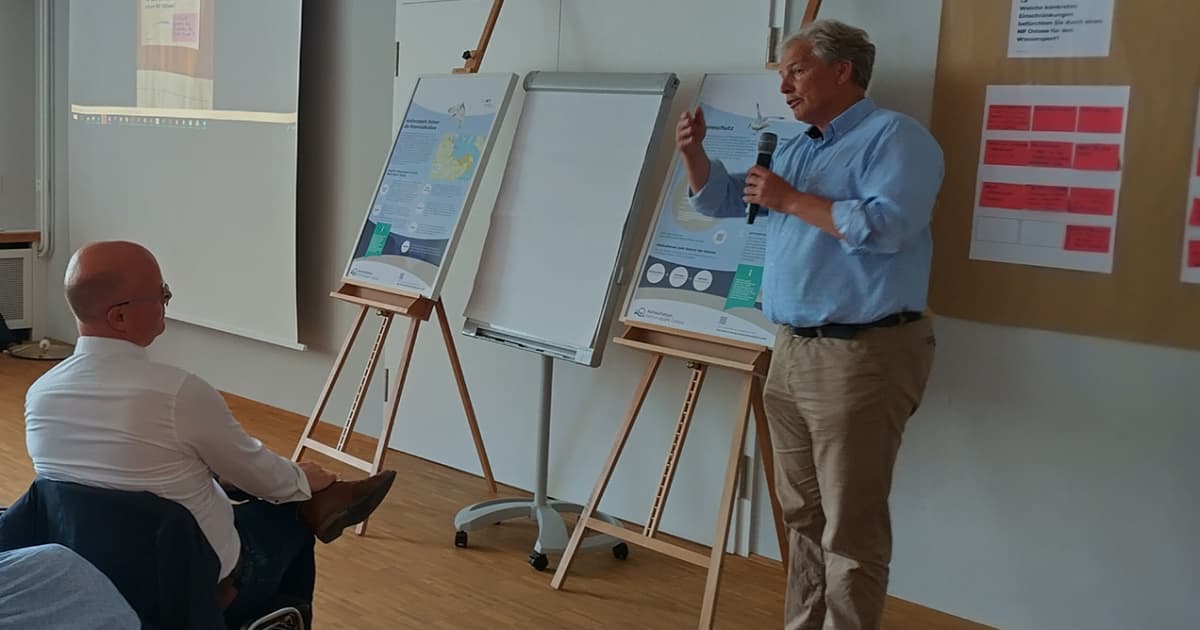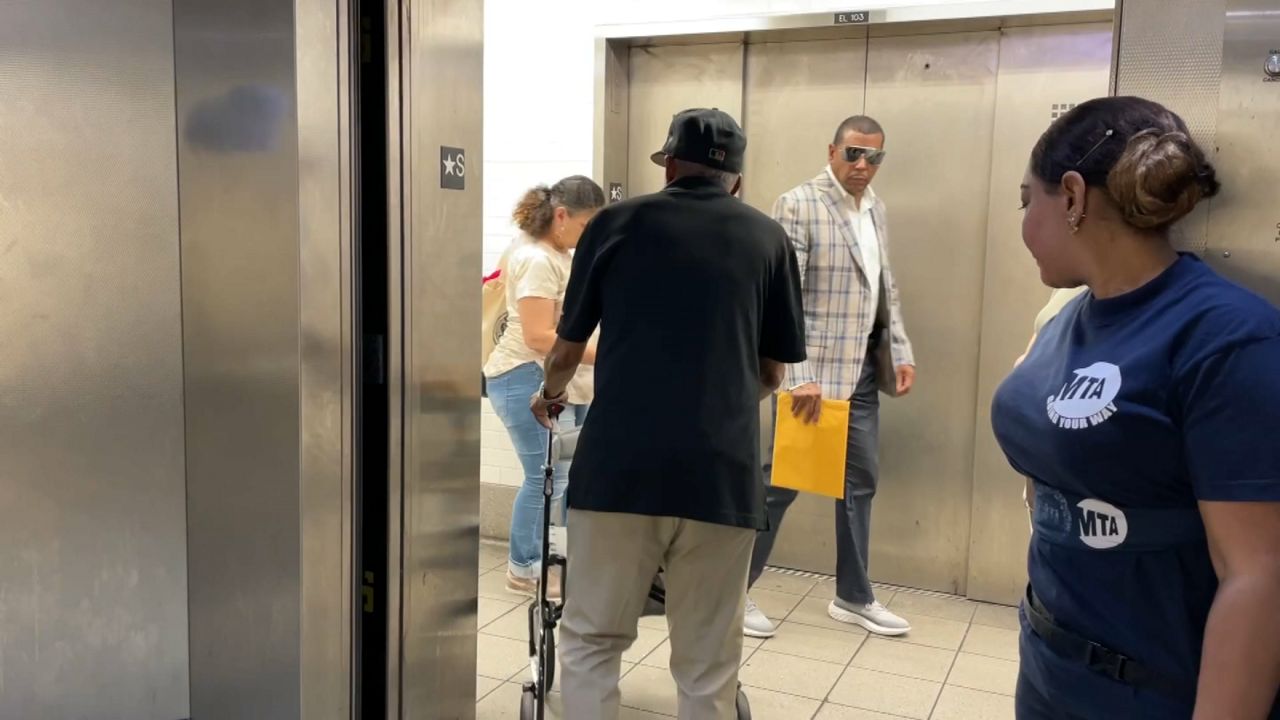YACHT: What were your expectations of today’s consultation and have they been met?
Since I am with the team from FINE After having discussed this topic several times, I knew what was to come and actually didn’t have any great expectations. But I have to say that today new topics with depth in content were presented and more transparency was provided than in the previous meetings.
What exactly do you mean by that?
For example, we discussed the subject of driving regulations again. The experiences with the Wadden Sea National Park and its new navigation regulations were discussed, which was very interesting. And we exchanged views on the instruments for protecting the Baltic Sea that already exist, such as the FFH areas and Natura 2000 areas.
And what exactly is more transparent than before?
The reasoning behind this national park is slowly becoming clearer to us. But it’s not really transparent yet. If someone were to ask me today, are you for or against it as a sailor, I have to say that at the moment I can only be against it because I don’t know what the national park will mean for me in concrete terms. That’s why I said to one of the questions today that I won’t answer it. Because it consisted of three subjunctive moods and several indefinite legal terms. The whole project is not tangible for us. It’s not at all clear what the national park will mean for sailors.
What is your experience with the Schleswig-Holstein Wadden Sea National Park?
You can clearly see that things have gotten worse and worse for sailors since the national park was established there. First we were allowed to navigate the tidal creeks, we were allowed to fall dry, today we are not even allowed to drive 100 meters into the mudflats and to anchor we have to drop the anchor at the edge of the fairway, so to speak. But that puts an end to anchoring because you would swoon into the fairway. That’s the experience we’ve had.
Has anything been said about possible traffic regulations?
The decisions about that would be made in Berlin. For us, the national park is therefore a black box. And so I have a hard time agreeing with that.
What was said about possible usage restrictions?
There is some ambiguity about the terminology. We currently don’t even know what use means afterwards. We know that we must not contribute or take anything. But do I bring in something if I start the engine? So my exhaust gas? Or take the dredging of harbor approaches. That should remain allowed because the infrastructure on the coastline will not be part of the national park. But what about the dredged material? Can we still dump this? And if so, where? And who bears any additional costs that may arise? If five nautical miles are driven now and then 30 have to be driven later, the costs will be immense. These are fears that port operators understandably have.
How do you currently assess the possible outcome of the project?
I don’t know it. But I think it’s more important that we sailors don’t stand in the way of preventing environmental protection measures. No water sports enthusiast wants the Baltic Sea to be badly off or deliberately harm it. Nobody does that. But I would like to know if there is an alternative scenario and if so, what that looks like. Instead, they started off in one direction without examining other options.
You mean in the direction of the national park…
… is also a cool label. But if you were to approach it objectively, you would first have to ask where we stand, what do we have and what can we do on the basis of the existing instruments to protect the Baltic Sea more intensively. And if it is then determined from a technical point of view that it is not enough, then I have to say, OK, what alternative is there. And if that’s the national park, then that’s technically justified. But we asked these questions all over the country and they were not answered.
What are the other non-technical arguments?
For example, I’ve heard that people in Berlin would pay more attention if ammunition was in a national park and not in an ordinary nature reserve. I’ve also heard that it’s easier to get funding when you have a national park. And of course there would also be a national park administration that would have staff and financial resources. But the money would of course come from the state, from the same pot that now finances other environmental protection measures.
What were the hottest questions in the workshop, did all water sports enthusiasts always have the same opinion?
We have different interests. Everything that surfs, kites, wingfoils, supped is of course closer to the beach than we sailors, and they fear for their spots and their accessibility. We sailors are afraid of our infrastructure and traffic regulations. Is it still possible to motor through, how about anchoring? And of course we see the major sporting events and mass sport, including every Wednesday evening regatta. We have laid out 14 regatta tons for this on the Flensburg Fjord, which are all very close to land. I see Optisailing, we have clubs that start from the beach. The catamaran sailors on the Holnis peninsula or in Strande are all afraid that they will no longer be able to practice their sport.
Why was the entire Bay of Lübeck excluded from the potential backdrop, for example, this is an area in which an above-average number of motor boats sail, including very large ones. So it would be easy to understand if the area were placed under greater protection than before for environmental reasons…
… I don’t know and I don’t want to make assumptions. One could also ask how the planned national park is related to the major construction projects. The largest concrete factory in Europe is currently being built on Lolland right on the water, the tunnels for the Fehmarnbelt crossing are being built and the Danes intend to leave the factory standing in order to use it for other infrastructure projects: A crossing from Kalundborg via Samsö to Aarhus. A combination of tunnels and bridges. The Danes are also very strong in wind energy and also want to pour the concrete foundations for new wind turbines in the factory, which will then be erected in the Baltic Sea. And then you have to ask yourself how it relates to the national park protecting the water area on 0.6 percent of the Baltic Sea coast. When Denmark builds such a factory next door, for which the adjacent waters are used as infrastructure for the ships that are needed for this. Well, then of course you can say now all the more…
…It is argued that we must all do our part…
…yes, today it was said that we are moving forward. As a model for other countries. For reasons of the biodiversity strategy. To do this, we have to protect a certain proportion, I think around 30%. We have already fulfilled that, if I have understood it correctly. And not the other neighbors. But we ride ahead. It is also right that we protect the Baltic Sea, but the means must also be suitable. And wouldn’t it be much more effective to talk to the other residents in order to set up a protective net, so to speak? There are already owners who put their ships on the Mediterranean Sea and commute there by plane. This is the opposite effect of the desired environmental protection.
The topic is immensely important for the sailors on the German Baltic Sea coast. How well do you feel supported in your work?
We are very well positioned. And I can only promote membership in a DSV club. We have full-time employees like Michael Stoldt who take care of such issues as part of their job. And the same applies to the state sports association, with which we also work very closely. There are also good experts who take care of this topic. Added to this is the commitment of the district sailing associations and the big clubs, so we pull together. And it’s good that we now also have the DOSB on board, because it’s also about competitive sport on the international stage, I’m thinking about World Sailing, for example, which holds its big competitions here. And if Schleswig-Holstein wants to become an Olympic venue, then it will only happen if we can show a suitable area.
Lawyer Hans Köster from Flensburg. The passionate sailor is responsible for environmental issues on a voluntary basis on the board of the Schleswig-Holstein State Sailing Association
More about the Baltic Sea National Park:
2023-07-16 05:01:44
#Baltic #Sea #National #Park #project #tangible


